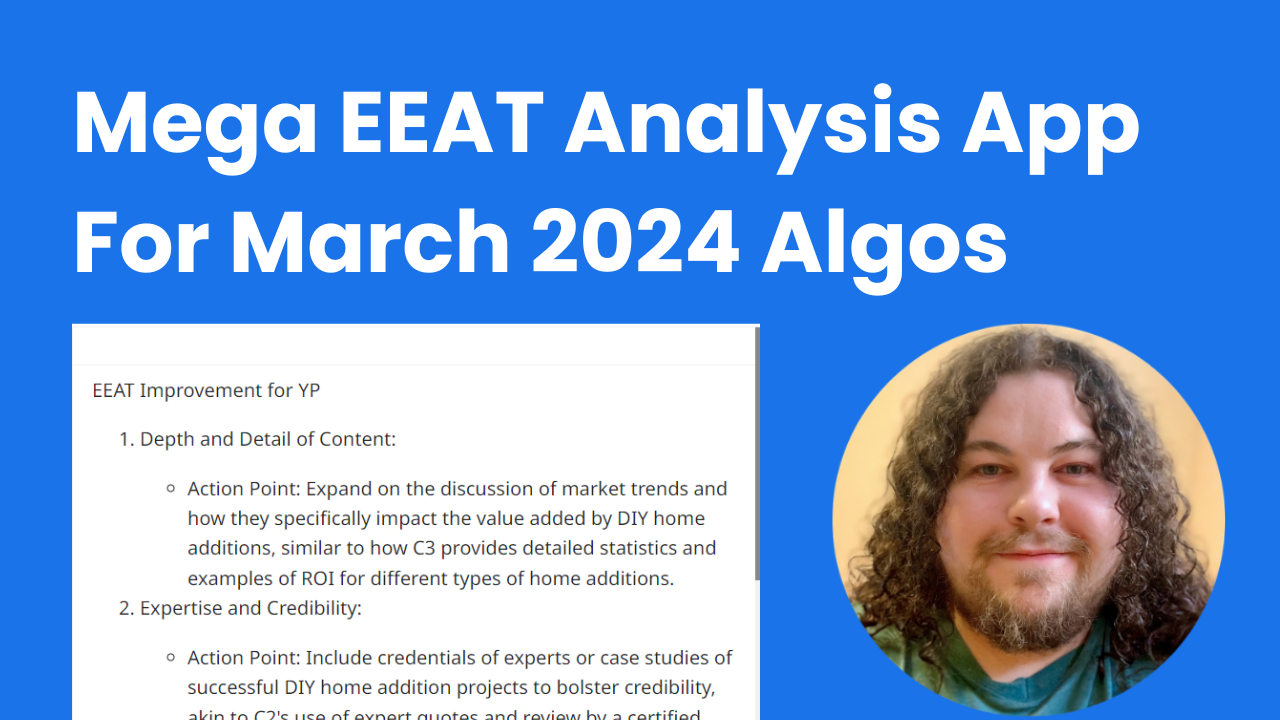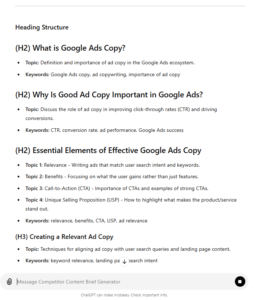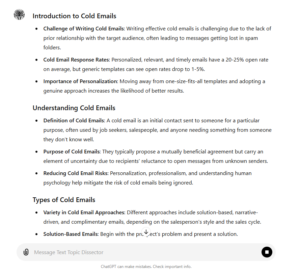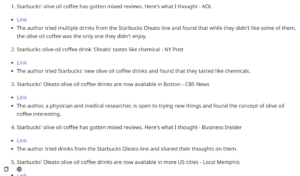This app provides an in-depth EEAT analysis of any web page.
It scans your page and three competitors, and gives you the following to help improve your page:
- Insightful recommendations with examples
- Information gain ideas
- Topic coverage analysis
- EEAT comparison scorecard
Try it here: Mega EEAT Analysis App
Use this app to help improve your content for the March 2024 Google Core and Spam updates!
Note: Larger pages will get a token timeout. It has a 16k token limit which can cover most pages, but not all. You may also get errors or inaccuracies. Post them in the comments to help me improve the app!
Who this app is for:
This app will help any business that wants to increase traffic and rankings from SEO. More specifically, businesses that have informational content such as a blog. You don’t need to be highly skilled to use this strategy, because AI is going to do all the work for us.
Why I made this app:
This app was built when trying to make EEAT tangible. Experience, Expertise, Authoritativeness, and Trustworthiness sound easy enough in theory. But AI makes it easy to see how top-ranking pages are using EEAT in their content. I created this tool when tasked to perform an EEAT analysis for a leading European bank.
How to use the Mega EEAT Analysis App
Step 1: Select one of your pages that you want to improve rankings and traffic for.
Step 2: Find 3 top-ranking competitor pages that rank for the target query you want to rank for. You can just Google the target query and pick out some competitors.
Step 3: Open up this Moonlit App, the Mega EEAT Analysis.
Step 4: Enter the URLS of your page and the 3 competitors into the input fields.
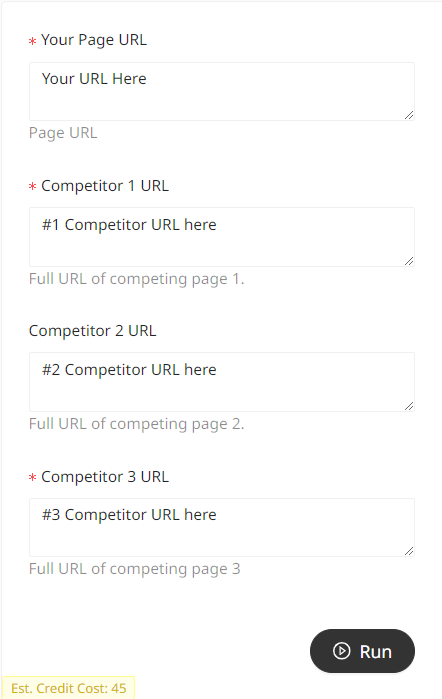
Step 5: Hit run. It will then go to work scraping your pages and using a sequence of 5 different OpenAI prompts which pass data to one another. It can take a few minutes to complete. Let it cook!
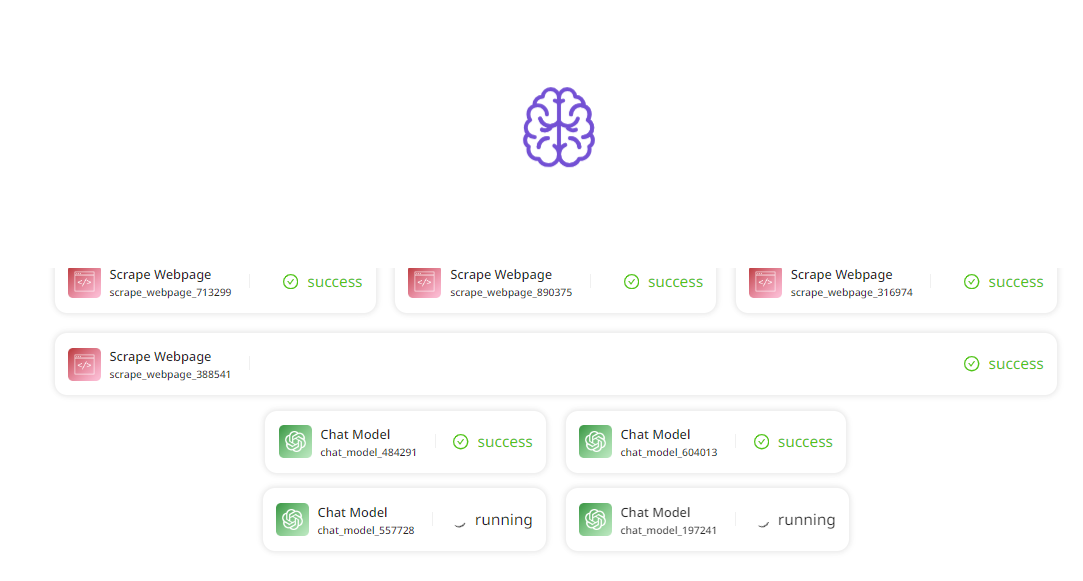
Step 6: Get recommendations. The Output provides a lot to work with. The only one you really need is the first one, which is the combined EEAT analysis report. It’s a curated combination of all the outputs from the AI. Note: AI is inconsistent and you may get a buggy output. Re-run if that happens.
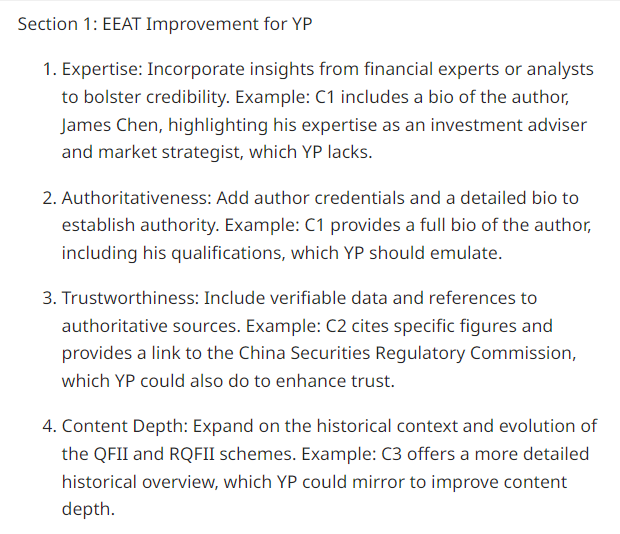
For example, I was looking at articles on QFII, a Chinese foreign investment option. It provided actionable recommendations like Covering additional aspects such as the impact of QFII and RQFII on the internationalization of the renminbi. No SEO tool is going to provide recommendations like this. It goes well beyond keyword optimization. Overall it provided 18 EEAT recommendations, 4 topic expansion ideas, and 5 information gain ideas for this run. That’s more than enough to beef up any page.
Step 7: Edit your page based on findings. You don’t have to incorporate every little detail recommended by the app. Add what you think makes sense and adds value. The app provides very specific recommendations and even points out where other pages outshined yours in those aspects. So it demystifies EEAT for you.
How this EEAT app improves rankings and traffic
It’s important to note that this app is not doing some kind of Google magic. While you may get improved rankings initially due to touching on better keywords and phrases, the majority of ROI happens over time. Because It’s simply helping you improve content in a way that provides more value to the reader. Google looks at things like time on page and bounce rate to assess how helpful a page is and uses that to feed rankings. You should see gradual improvements in rankings and traffic after implementation. Stack that up after a series of pages and you’re on your way!
Troubleshooting
It can sometimes hit token limits when processing longer pages. Or it may have trouble scraping a page. Try shorter pages and different URLS if this happens.
The EEAT analysis and topic coverage tables may also be inaccurate. But the majority of value comes from the final EEAT report so it’s no big deal. AI tools aren’t perfect (yet).
Special Considerations for Reviews Content
For review-focused content like “Top 10 tools for XYZ” – I recommend using a different tool that is focused on Google’s high quality reviews criteria. Review content has a whole different set of ranking rules. Check out my High Quality Reviews app for these content types.
The March 2024 Google Algorithm updates aren’t about AI content
The March 2024 Google Algorithm updates aren’t about how much AI is being used. It’s about how useful pages are.
Google looks at factors like long clicks (length of time before returning to search) and click reversions (quickly returning to search) to determine how helpful a page is to a specific query. These terms are from search patents dating back to 2009. And recently resurfaced in Google’s anti-trust trials.
Scaled content abuse = not adding value
Google’s guidelines on scaled content abuse specifically mention “pages that don’t add value”. Think about how an algorithm determines value. Google isn’t an opinionated writing quality evaluator. It’s a semantic search engine that’s constantly testing queries vs pages and measuring a few key engagement performance metrics like clicks and returns to search.
If users quickly return to search after visiting your page, it tells search algorithms that your page isn’t a good match for the query. It then tests increasing rankings on a different page. If that page performs better, it’s more likely to hold position and increase over time. These aren’t the only factors at play. Google is incentivized to show the best pages possible to improve the quality of search.
Keyword optimization isn’t the answer
Keyword optimizing a page will only take you so far. It will help search engines figure out what queries to test your page against. After that it’s a game of ensuring your page covers the essential topics and delivers a better ROI on the user’s time than other pages. Higher ROI pages are rewarded with higher rankings over time as the algorithm tests different queries. The only way to win at that game is with EEAT.
EEAT isn’t a ranking factor, but it’s what Google is optimizing for. Google wants content that demonstrates first-hand experience, a fair amount of expertise, original information, trustworthy and credible sources, and transparent authorship. This is especially true for YMYL industries like finance and health.
Beating query performance benchmarks is the secret to success
It doesn’t matter how content was produced. What matters is how valuable, satisfying, and useful the content is to a reader. Benchmarked one query and one page at a time. Every query has a different benchmark. Some queries need comprehensive information. Some need quick but useful information.
If you can make a page that engages better than what’s already on the SERPS, you’ll be rewarded with traffic and rankings.
Build your own EEAT analysis apps
It would take a couple of hours to manually do the research that this app can do in 5 minutes. AI can be powerful when used correctly.
Even better, this app can be customized to meet specific criteria. For example, fine-tuning it for travel site recommendations.
Learn how to build and customize apps in my AI SEO academy.
I’ll show you how to build this app, and many more like it. To help streamline your SEO efforts.
